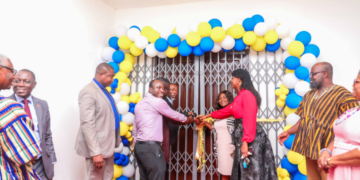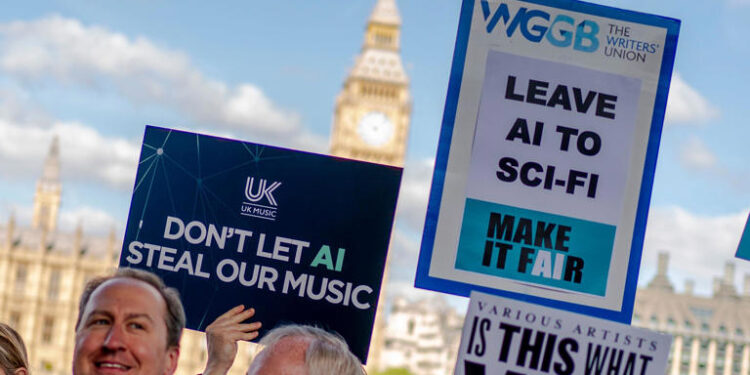The ongoing battle over artificial intelligence (AI) and copyright—pitting the government against major players in the creative industry—returns to the House of Lords on Monday, with no resolution in sight.
Tensions are escalating between ministers and peers advocating for artists, with the debate revealing fundamental human issues of jobs and creativity. It’s unusual that neither side has shown signs of backing down or compromising, and support for the opposition seems to be growing.
Described as “uncharted territory” by sources in the peers’ camp, the dispute centers on how to balance the needs of the tech and creative sectors. Specifically, it addresses the fairest way for AI developers to access creative content to enhance their tools without jeopardizing the livelihoods of content creators.
The controversy has been sparked by the Data (Use and Access) Bill, which was expected to finalize its passage through parliament this week but is now stalled between the House of Lords and the House of Commons.
A government proposal suggests AI developers should have access to all content unless owners opt out. However, nearly 300 members of the House of Lords oppose the bill, arguing that AI firms should disclose the copyrighted material they use for training, aiming for proper licensing.
Sir Nick Clegg, former president of global affairs at Meta, supports the bill, claiming that requiring permission from all copyright holders would “kill the AI industry in this country.” Conversely, Baroness Beeban Kidron warns that failing to protect creators could lead to “state-sanctioned theft” from a £124 billion industry.
ICYMI: Ghana reopens Washington Embassy with new leadership after service breakdown
She is advocating for an amendment that would require Technology Secretary Peter Kyle to report on the bill’s impact on creative industries three months after its implementation.
Kyle has acknowledged that UK copyright law is now “not fit for purpose,” indicating a shift in perspective.
The Department for Science, Innovation and Technology is conducting broader consultations and will consider changes only if they benefit creators.
If the current stalemate continues, there’s a slight chance the entire bill could be shelved, which would also eliminate other important provisions, such as those concerning bereaved parents’ access to data and NHS patient data sharing.
Initially, before the rise of AI, developers scraped vast amounts of content from the internet, claiming it was public domain and thus free to use. This content trained AI tools that can now generate text, images, and videos, sometimes mimicking well-known artists.
The backlash from creators, including Sir Elton John and Dua Lipa, has been significant. They argue that this unauthorized use of their work constitutes theft and is driving artists out of their jobs as AI can produce similar content rapidly.
Elton John recently criticized the government for potentially “robbing young people of their legacy and income,” calling the current administration “absolute losers.” However, some argue that making it too difficult for AI companies to access this content in the UK could push them to operate elsewhere, resulting in lost investment and job opportunities.
With two opposing positions and no clear compromise in sight, the dispute continues to unfold.
SOURCE: BBC




























